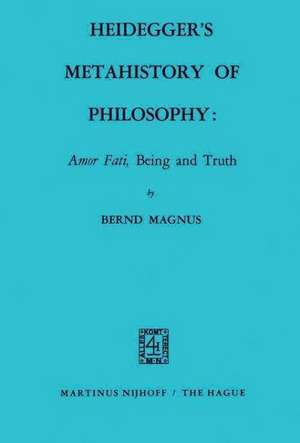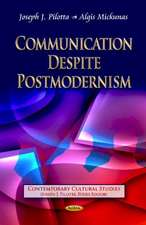Heidegger’s Metahistory of Philosophy: Amor Fati, Being and Truth
Autor B. Magnusen Limba Engleză Paperback – 31 iul 1970
Preț: 380.63 lei
Nou
Puncte Express: 571
Preț estimativ în valută:
72.84€ • 77.88$ • 60.73£
72.84€ • 77.88$ • 60.73£
Carte tipărită la comandă
Livrare economică 17 aprilie-01 mai
Preluare comenzi: 021 569.72.76
Specificații
ISBN-13: 9789024750528
ISBN-10: 9024750520
Pagini: 164
Ilustrații: 159 p.
Dimensiuni: 155 x 235 x 9 mm
Greutate: 0.24 kg
Ediția:Softcover reprint of the original 1st ed. 1970
Editura: SPRINGER NETHERLANDS
Colecția Springer
Locul publicării:Dordrecht, Netherlands
ISBN-10: 9024750520
Pagini: 164
Ilustrații: 159 p.
Dimensiuni: 155 x 235 x 9 mm
Greutate: 0.24 kg
Ediția:Softcover reprint of the original 1st ed. 1970
Editura: SPRINGER NETHERLANDS
Colecția Springer
Locul publicării:Dordrecht, Netherlands
Public țintă
ResearchCuprins
I: The Philosophy of Eternal Recurrence.- I: Nietzsche’s Literary Estate.- II: Cosmological and Logical Dimensions of the Doctrine of Eternal Recurrence.- III: Nietzsche’s Existential Imperative.- II: Heidegger’s Metahistory of Philosophy.- I: Heidegger and the Tradition.- II: Nietzsche as Metaphysician.- III: Heidegger’s Nietzsche in Critical Perspective.
















